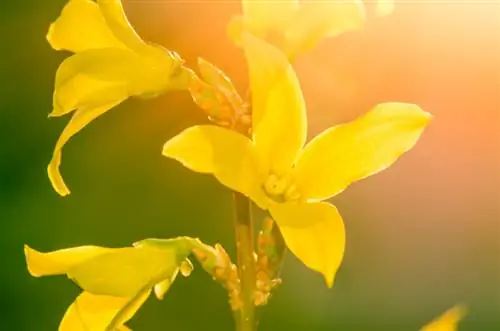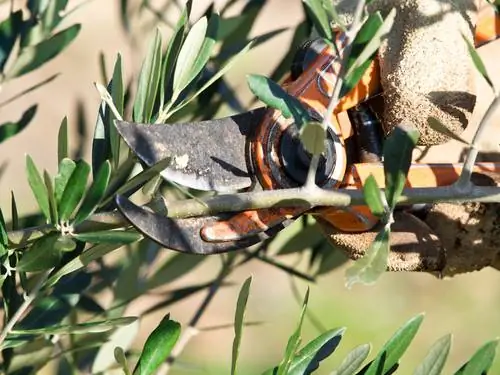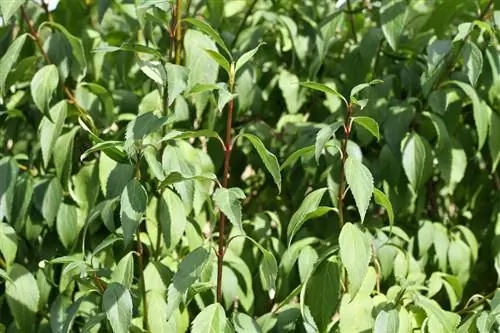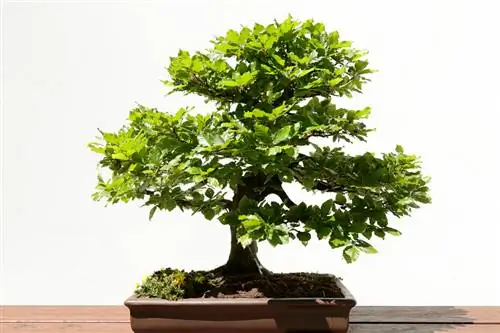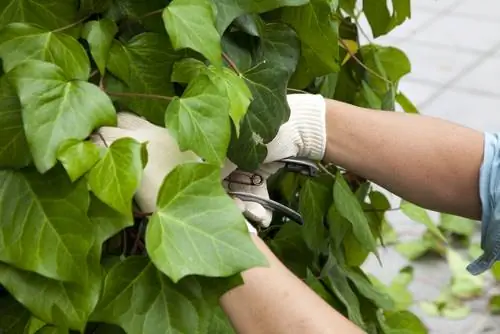- Author admin leonars@hobbygardeners.com.
- Public 2023-12-16 16:46.
- Last modified 2025-01-23 11:20.
Growing bonsai is a popular hobby among advanced gardeners. If you also want to try growing mini trees, the forsythia is a suitable object. To start with, it makes sense to buy a pre-grown bonsai and familiarize yourself with the care.
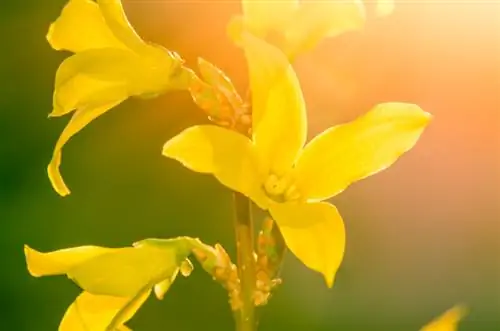
How do you care for a forsythia bonsai?
A forsythia bonsai requires careful care through regular watering, fertilizing, repotting, wiring and cutting the branches and roots. Fertilizing is paused during the flowering period and repotting is done every two years to prune the root ball.
Planting forsythia as a bonsai
Bonsai forsythias are grown in a suitable planter. The vessel is filled with a mixture of humus, Akadama earth and lava grit.
The tree can stand outdoors all year round.
Caring for the bonsai tree
In order for the bonsai forsythia to retain its characteristic shape, it needs optimal care:
- Pouring
- Fertilize
- Repotting
- Wiring
Pouring
Bonsai forsythia must never dry out completely. Water regularly, but avoid waterlogging.
Fertilize
While you do not need to fertilize forsythia outdoors, it is necessary when caring for bonsai. Use a special bonsai fertilizer that you can get from specialist retailers. Fertilize according to instructions from spring to autumn. Fertilizer is only not given during flowering and immediately after repotting.
Repotting
Every two years, place the bonsai plant in a larger bowl. Replace most of the plant substrate. Repotting is also necessary so that you can prune the root ball.
Wiring
In order to give new shoots the desired shape, the branches are wrapped with aluminum wire and bent. In mid-May, remove the wires so as not to hinder the growth of the branches.
This is how the bonsai is cut
Unlike normal-growing forsythia, with bonsai you not only have to cut the branches but also the roots regularly.
Cutting forsythia branches
So that the bonsai develops abundant flowers, like all forsythia, it is only cut back after the flowering period. If possible, only branches that are older and have already borne flowers are removed.
Pruning root balls
Prune the root ball every two years when repotting. This allows the roots to branch out better and gives the bonsai a compact appearance.
Tips & Tricks
Bonsai forsythias can also tolerate sub-zero temperatures. To be on the safe side, you should place the pot in peat and also cover the surface with soil. If it gets very cold, protect the bonsai with plastic wrap.

